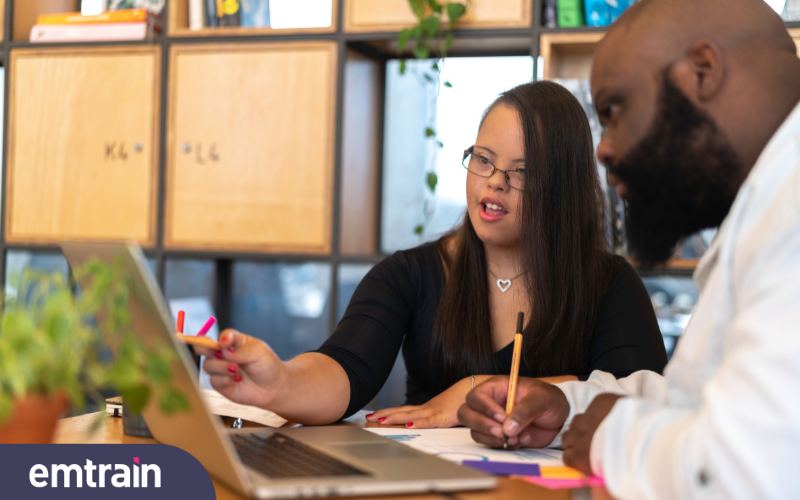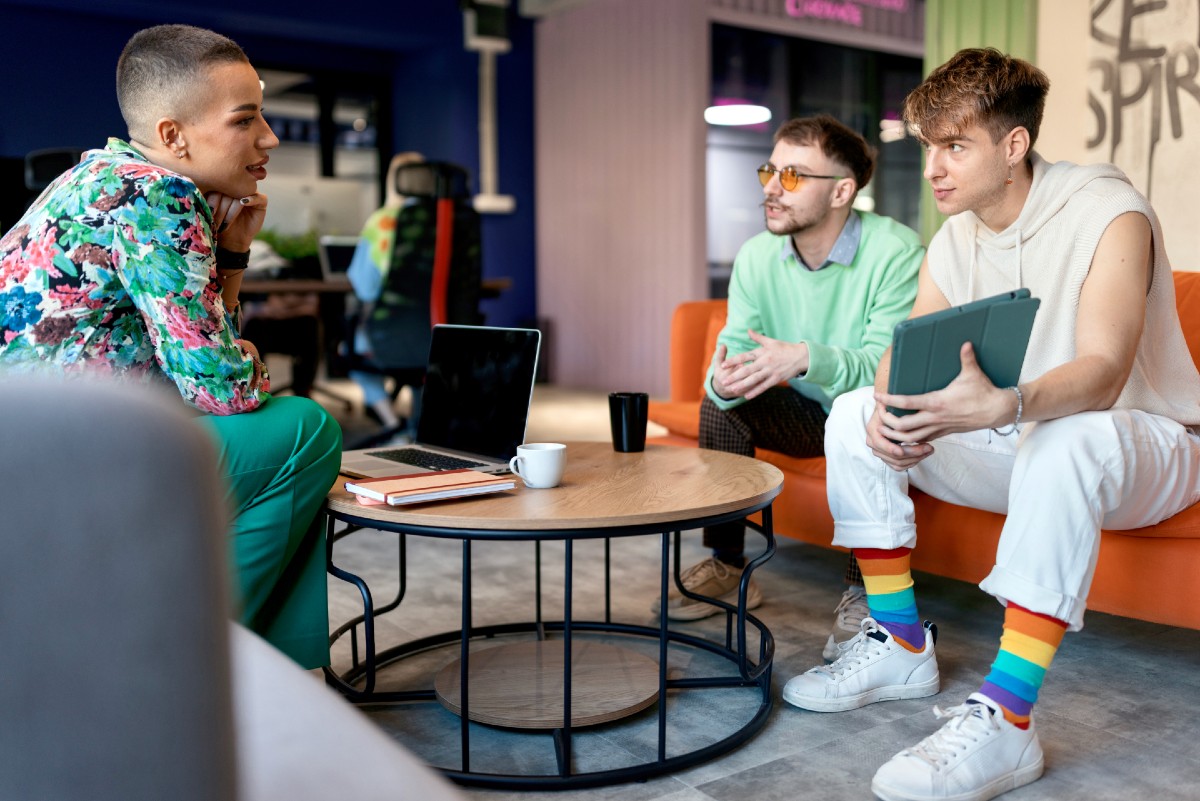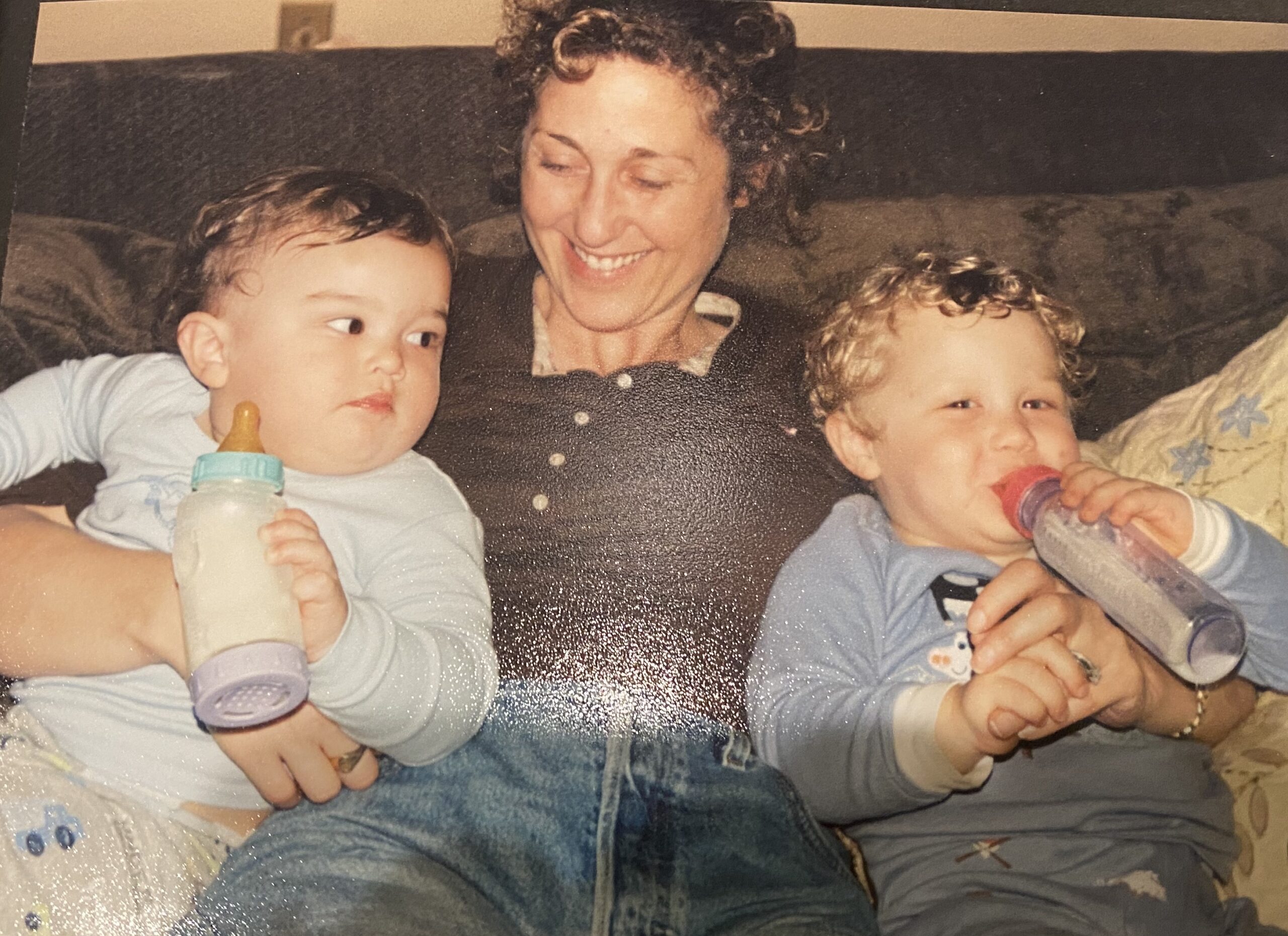At Emtrain, we’ve been hard at work building a framework for measuring and scoring indicators of Inclusion, Respect, and Ethics and providing research and benchmarking to help companies be more intentional in their efforts. As we teach and gather insights, we also collect learner stories, and we’re always touched by the workplace situations they choose to share. Here are some of their experiences, in their own words.

Everyone has a different range of abilities, their own personal profile of physical and mental challenges. For some, these are minor, and for others, they are severe. Yet, people have a remarkable ability to adapt to their situations. Those who can participate in a working environment figure out how to cope, modify, or transform to do the work they need to do. As co-workers and teammates, it’s our job to support and accommodate each other’s differences in the most respectful way possible.
Be aware of and value differences in abilities
Many companies strive to create a positive workplace that feels inclusive to all (eg., health and disability inclusion) However, each of us has a role to play: in taking care about the language we use, the assumptions we make, and our own bias of what is “normal.”
“We had someone to come apply and at first I was like ‘how can she work here & climb the ladder’ [as] she had a disability. Honestly, we hired her and she turned out to be great with our customers. Her ability did not stop her at all. Glad we hired her. That is when I realized that we don’t need to judge ANYONE. Give everyone a chance.”
“I didn’t have patience for an employee cutting fabric. later found out she had a learning disability. She is now one of our best employees. She is just a little different.”
“There’s a lot of unconscious bias towards people with both physical and mental disabilities in the workforce. I’ve watched someone get fired for having a physical disability. A lot of people had doubts about her ability to work in a fast-paced, busy, crowded place, but she was a very nice, hard-working person that I thought we need more of in the customer service environment.”
“The COO used the work “schizophrenic” in a presentation. It was triggering for employees with disabilities and mental health conditions.”
Be inclusive in the workplace environment, particularly for those with differing physical abilities.
Employers have an obligation to make reasonable accommodations for their employees. Yet sometimes, situations occur. You can be an ally, helping to ensure that people are not left out, unheard, or undervalued. You can also be an upstander, intervening when you see a disrespectful situation or alerting managers to situations where a co-worker needs more support.
“There was someone who was experiencing some physical challenges in mandatory participation situations and was not given means of accommodating or assisting with those challenges. Not only did it cause significant physical problems but it was also humiliating, frustrating, and distracting for the person – lack of value, outsider, ignored, burdensome.”
“In the past, I made assumptions about younger people who took the escalator/elevator rather than a short flight of stairs. Later on, I had issues with my knees and couldn’t take the stairs anymore and thus realized that I should not have made assumptions. You don’t know what people are going through.”
“I feel that being a person with a physical disability, many times I feel that I am not considered in some activities.”
Believe in people so they have the opportunity to deliver great results
Instead of focusing on what someone can’t do, focus on what they can do. People who have a weakness in one area tend to have even greater strengths in other areas – and those strengths may just be what you need. By being more open-minded, you’ll be more inclusive, by being more inclusive you’ll help individuals their full contribution.
“…unloading a freight truck having an associate that has a disability and everyone thinking he could not put freight on…and keep up with the workload. I not only gave him the opportunity to throw the freight but he completed this task faster and more effectively than some of the other members on the crew.”
“There were 3 of us interviewing the same person & at the end of our interview, we shared our thoughts. I thought the person would be a good fit despite certain things, but the two other people looked too much at this person’s “disability” rather than what he could accomplish. I stood with my opinion, but in the end, it was outnumbered.”
“Our competitor would not accommodate a team member with a disability so they did not hire her, but she has been one of the most hard-working and competent employees we’ve had with us for years now.”
How can you and your team become more aware of your obligations and moral responsibilities towards people of different abilities? Check out our Disability Protections in the Workplace Course, Equal Employment Opportunity Course, and our most recent blog post on Ableism and Ableist Microaggressions.







